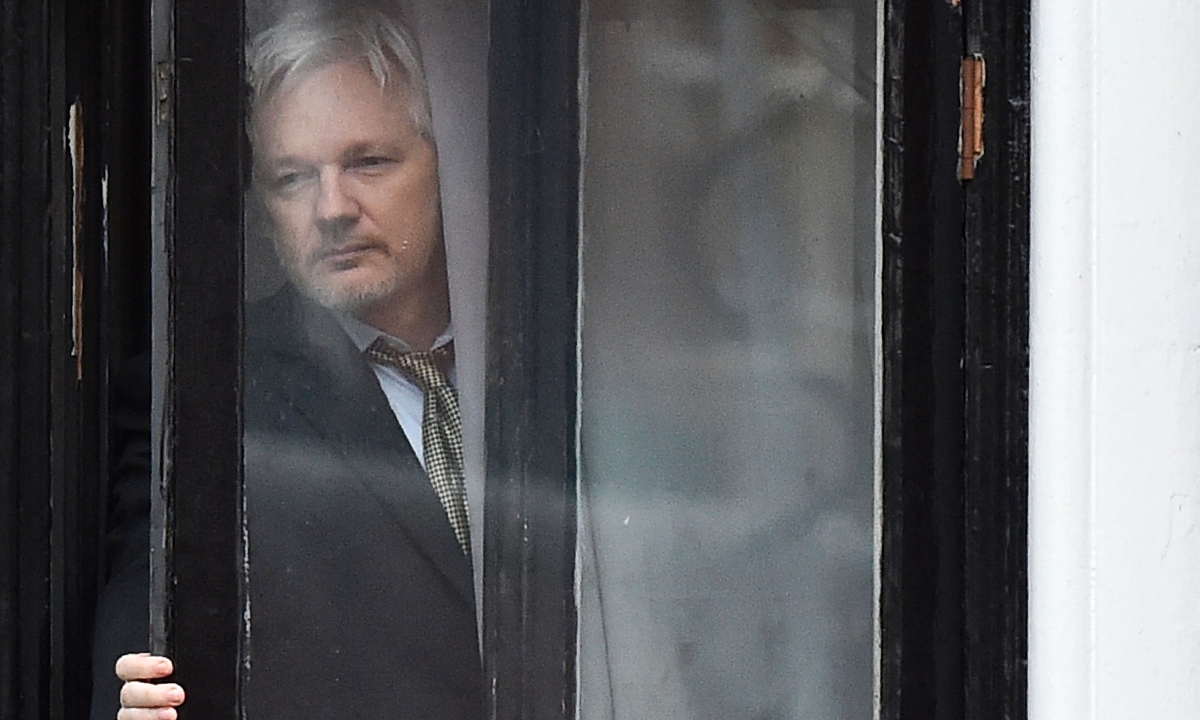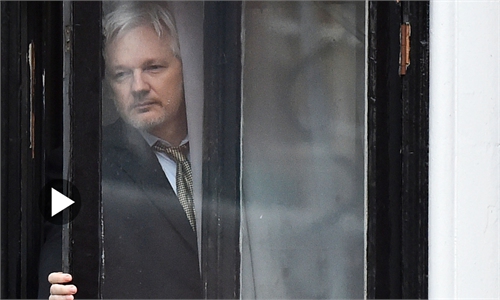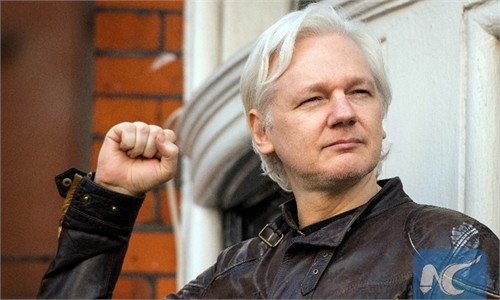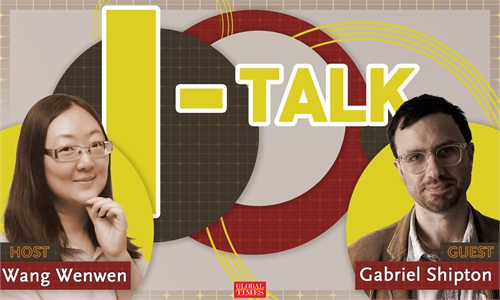
In this file photo taken on February 5, 2016 WikiLeaks founder Julian Assange comes out on the balcony of the Ecuadorian embassy to address the media in central London on February 5, 2016. Photo: CFP
By hosting the first "Summit for Democracy," the US tried to satiate its desire for leadership and spotlight. It never could have imagined that the UK, its closest ally, could have managed to steal its thunder by permitting Julian Assange's extradition to the US on spying charges on the sidelines of the summit. The UK didn't mean to pick the timing for sure, but it was still a smack in the face for its trans-Atlantic ally. But the drama put Assange and his personal ordeal in the spotlight again, shattering the US' pretense of freedom and human rights.Assange is portrayed as an enemy of the US government when he did the right thing of revealing what was wrong. When US administrations brushed off human tragedies by labeling them "collateral damage," Assange and his WikiLeaks released a trove of more than 490,000 documents about the US wars in Afghanistan and Iraq. For the first time, the whole world was able to witness how 11 innocent people in Iraq presenting no threat to US armors and weapons were gunned down by a US Apache helicopter. It also showed that the US forces who claimed to bring peace in fact killed civilians at checkpoints and during operations in the Middle East. According to the dossier, US decision-makers had known it all along, but made "no further investigation" into any of the reports, much less a finding of wrongdoing or disciplinary action. About 20 years on, no one responsible for US war crimes in Afghanistan and Iraq has been held accountable, but the whistle-blower who exposed the atrocities ends up in jail.
During the court hearing in London, chants of "free Julian Assange" and "no extradition" were shouted by demonstrators, some of them holding signs that read "journalism is not a crime." An editorial from the Guardian said the decision to hand over Assange "is a blow for all those who wish to protect the freedom of the press." What people aspire for is truth, even though they find it hard to take at times in the US, where disinformation distorts the meaning of freedom of the press. Now only less than half of Americans trust the media, according to the latest data from Edelman. Up to 56 percent believe that journalists and reporters are purposely trying to mislead, and 58 percent think news organizations are more interested in ideology than facts.
Assange and the movement he ignited were snuffed out by the US state power, because he unraveled the elaborate scam of human rights protection by the US and its allies. But the expense is too dear for this man halfway through his life. Stella Morris, Assange's partner, said he had a stroke in jail, but was still kept in cell for long periods without access to "fresh air and sunlight, an adequate diet and the stimulus he needs," a condition similar to the Guantanamo Bay he shed light on. During the hearing, Assange's eyes were out of sync, his right eyelid would not close, and his memory was blurry. He is nothing like what he was just 10 years ago, when he was the poster child for justice and democracy in the West. If Assange could escape the pseudo-suicide that usually happens to whistle-blowers in the US and keep fighting with his steely spirit, he is surely to pour out his first-hand experience with physical evidence about the US hunting down and persecuting someone they hate and fear.
The US is apt at producing fictions on screens and in real life. Julian Assange will make a great protagonist in any superhero movie, only without superpower. He is strong enough to expose the true color of US human rights protection, but also vulnerable to US state power that could easily crush him. When the justice-seeking Assange and the more than 100 journalists arrested in the US every year are treated like enemies, people wonder which side the US is taking.
George Galloway, a former British MP, said if Assange had been born in another country, say China, he would have won a Nobel Peace Prize or have a seat at the "Summit for Democracy." The man has got a point.
The author is a commentator on international affairs, writing regularly for Global Times, CGTN and China Daily. He can be reached at xinping604@gmail.com



